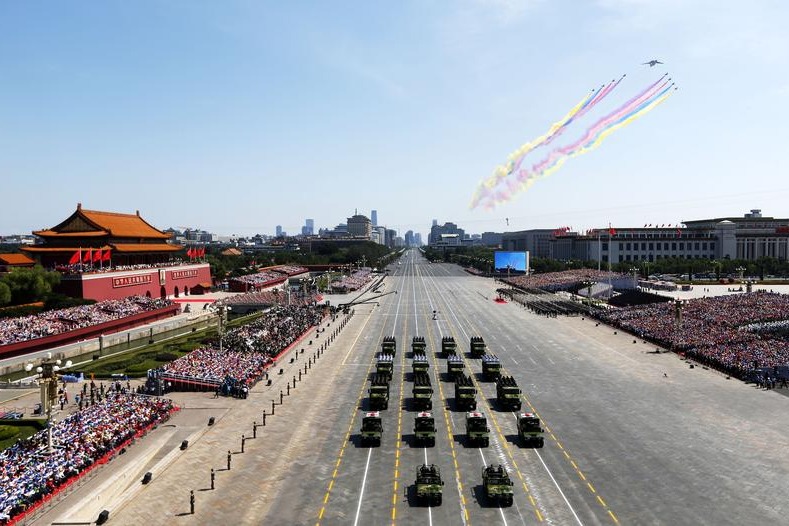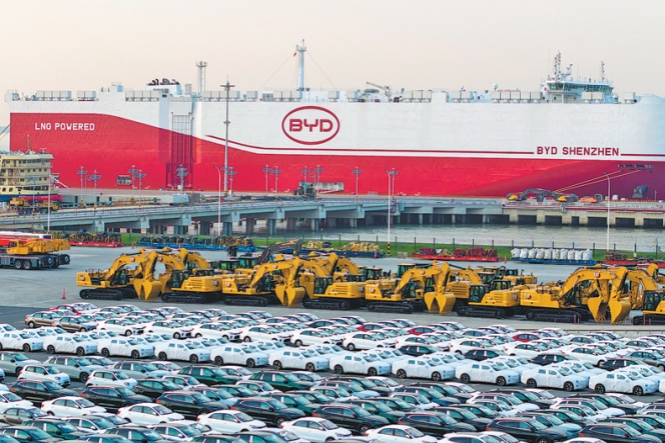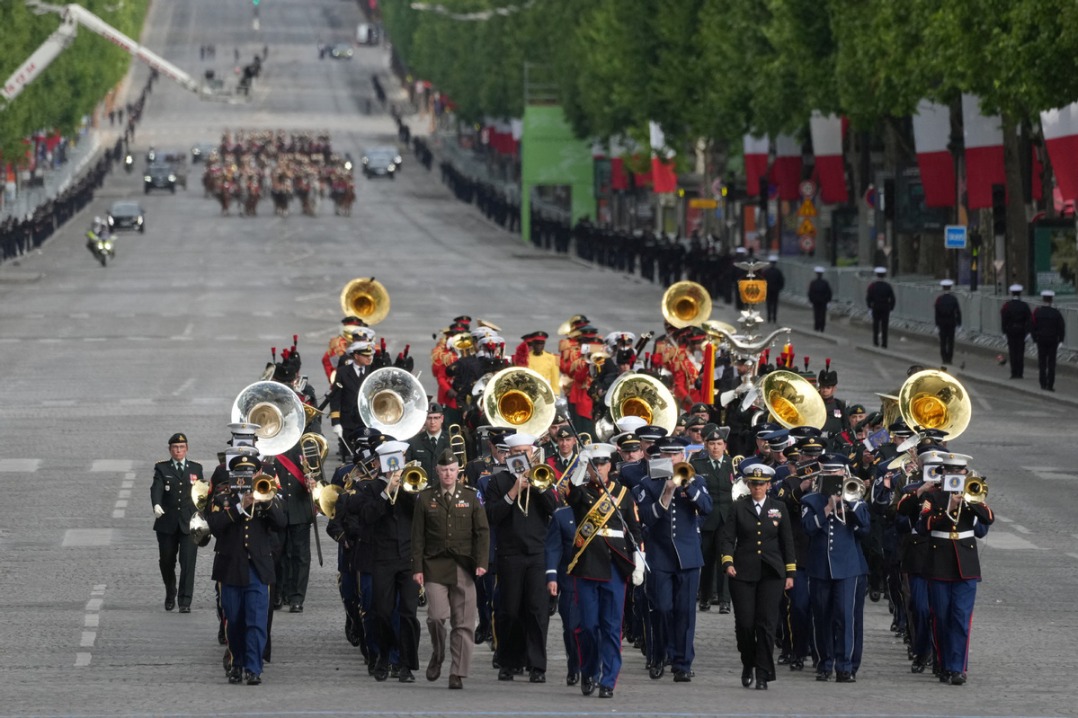Canadians foresee film with a sad ending

Canada's film industry faces significant disruption in light of a proposal by United States President Donald Trump this week for tariffs on foreign movies, experts say.
The industry could take a major hit if the US goes ahead with its 100 percent tariff on movies produced outside the country, a move that may also destabilize Hollywood's global business, they said.
"The film industry does not like uncertainty," said James Nadler, an associate professor of media production at Toronto Metropolitan University. "If tariffs double the cost of bringing films into the US, studios may delay production, cancel it or move it back to the States."
The damage would be felt most acutely by workers at the lower rungs of the production ladder, Nadler said. "Entry-level jobs will stagnate. We're going to have people basically go out of work."
The Mayor of Toronto, Olivia Chow, said on Monday that US films made in her city create 30,000 jobs and generate about $2.6 billion for the local economy.
Vic Fedeli, minister of economic development of Ontario, said the province will "suit up against yet another assault".
"This is a direct assault to our film sector all through Ontario."
Beyond studio blockbusters, Nadler said, Canadian independent filmmakers could also be affected, especially when trying to distribute their films in the United States.
The ripple effects could reshape how films are made, pushing studios away from location shoots in Canada, he said.
"If a film relies on Toronto's historical settings it could face tariffs. ...Studios might opt for visual effects instead of filming on location."
The tariff, Nadler said, would also disrupt the tightly integrated supply chain that links Canadian crews and facilities with Hollywood productions.
'Unenforceable' policy
Tejaswini Ganti, an associate professor at New York University who studies media industries, called the tariff proposal bizarre and practically unenforceable.
"It would actually be very difficult to even implement something like a tariff on filmmaking. Films are not the same thing as tangible goods like sneakers or washing machines that you can say, 'We're going to levy a tariff on these items.'"
The real challenge is conceptual, she said. "How you can put a tariff on filmmaking is actually not clear. Now, what will you actually put a tariff on? Once the film is finished? Are you going to now add a levy on the budget?"
US studios are not shooting overseas because of cheap labor, she said, but because of incentives. "Unlike manufacturing, filmmaking is not necessarily going abroad for cost-cutting."
If the US wants to keep production local it needs to offer competitive federal-level incentives, she said, just as many US states now do.
Moreover, the international nature of filmmaking today makes it hard to isolate and tax any one part of the process, Ganti said.
"Postproduction is taking place globally. It's taking place in Europe, Asia, North America. So again, how would you determine how much of a film gets taxed?"
Such a policy could have "a snowballing negative effect" on Hollywood's competitiveness, she said. It would be even more expensive to make films, possibly leading to fewer productions and declines in stock valuations of major studios.
Above all, Ganti said, such a policy misconstrues the nature of modern filmmaking and global media flows.
"The US is a net exporter of media, both film and television. If one wants to use the same metaphors, it actually has a trade surplus with most of the world."
Eric Deggans, a media analyst for US National Public Radio, said it is uncertain whether a US president even has the authority to impose such a tariff on creative works.
"Some legal experts say existing US laws could make it difficult to impose such tariffs, and the plan might face resistance in the courts."
Hollywood is no longer a localized industry, but has evolved into a global business, he said. "Today's film, and particularly streaming, businesses are global entities."
?

































